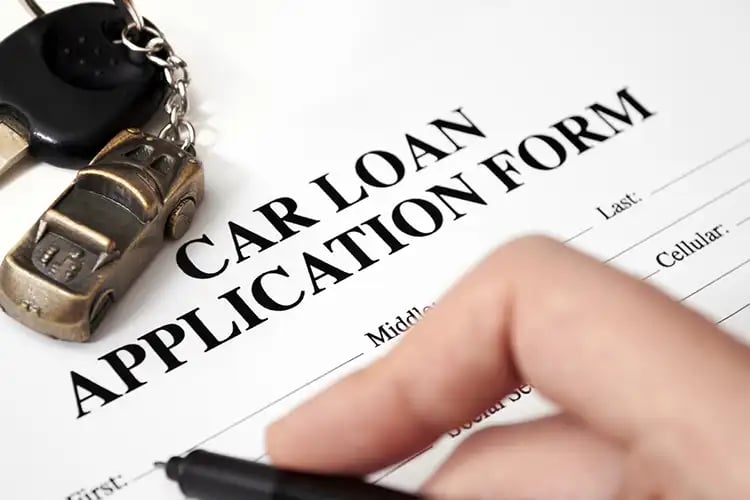
Buying a car is a big financial decision for anyone. The investment and potential benefit of the vehicle make you think carefully both about the car you choose and the way you will pay for it. Most people don't have the cost of a vehicle in their savings, so the question turns to finance. Should you save up carefully for a car and pay in cash, or is it better to get an auto loan?
Whether you pay cash or get a loan for your vehicle is more than an issue of money or principle. It's also a matter of strategy, interest rates, your credit score and your personal approach to finances.
Vehicle Loan vs. Buying in Cash
The best place to start is to look at the differences between paying with a loan vs paying in cash.
Auto Loans
- Monthly loan payments
- Set repayment time
- Increased credit score
- Required insurance standards
Buying in Cash
- Own the car immediately
- Monthly insurance payments
- Uses your savings
Buying your car with savings is a great way to own your vehicle free and clear from the beginning. You can pass up the typical monthly loan payments by paying with cash. However, there are reasons why you might choose an auto loan rather than saving up or paying with your savings for a vehicle. Completing an auto loan can improve your credit score, and in some cases, the interest rate for a loan may be better than building savings.
How to Save Money to Buy a Car With Cash From Savings
Why save up money to buy a car? There are many advantages to buying a car with cash rather than taking out an auto loan. The biggest advantage is, of course, owning the car completely after purchase. In addition, the buying process does not require the approval of any bank or lender. However, it may take time to collect your savings - time you might need a vehicle - or paying from cash can deplete savings in existence.
Let's look more in-depth into the process. Here are some tips for saving for a car:
The Saving Period
If you don't already have deep savings to buy a vehicle, buying in cash starts with a saving period. You will want to calculate how much you can save up per month and how many months it will require to reach the approximate price of the car you wish to buy. Saving for a car is practical if you already have your transportation needs taken care of for the duration. However, if you need a car more urgently, you may not have time to save.
Your Savings Interest Rate
The interest on your savings account can affect your plans to save for a car. The higher your interest rate, the more money you make year-on-year (in some cases month-on-month) from what you've already saved. The interest rate of your savings account gives you a percentage of your savings as a bonus at the end of each calculated period. A better savings account interest rate can mean reaching your savings goals more swiftly.
Buying in Cash
Once you are done saving, find the vehicle of your choice with a nearby dealership. Approach the dealership and make it clear that you intend to buy with cash. This allows you to skip the aspects of car purchasing that relate to an auto loan. You don't have to get in touch with your bank or get approval for the loan and car. Once the negotiations are done, and you're ready to complete the sale, your dealership will process the payment, and you will become the proud owner of a new vehicle.
Car Insurance Without an Auto Loan
While you won't be paying monthly for a loan, you will still have a monthly expense in the form of car insurance. Every modern driver should have car insurance. However, buying your car in cash gives you a wider range of insurance plan options from which to choose.
Saving Up for a Car vs. Taking an Auto Loan
Buying a car is a big financial decision. Should you save up or is it better to get an auto loan? Learn more about the differences here.
Buying a Car With an Auto Loan
Purchasing a car with an auto loan is the standard approach. Because most people don't have time to save up for a car or have the deep savings to cover the cost, financing a vehicle purchase is the most expedient way to become a car owner. An auto loan can streamline your auto purchase if you need a car for work or other obligations. Auto loans can also provide improved credit ratings. However, many consider the monthly repayment and the added interest cost to be a disadvantage.
Here's what goes into buying a car with an auto loan.
The Loan Interest Rate
Start by looking for a good car loan offer. The best car loans have a low-interest rate, meaning you will pay less for the loan itself. The interest is calculated based on a percentage of the car's cost - or the total amount for the loan.
Lower interest rates are better, meaning the car and loan will cost less. If you find a good auto loan opportunity, confirm your desire for a loan with the bank before starting the purchase process with the dealership.
Your Down Payment
Auto loans, like home loans, require some amount of down payment. This indicates that you have some form of income and can invest a certain amount of the car's value even while taking a loan. It is typically a good idea to have about 20% of the vehicle's price put into the down payment. A higher down payment amount can also result in a lower overall interest rate.
Buying With an Auto Loan
When you purchase a car with an auto loan, your dealership will know what to do. Because most people use financing to buy a car, the dealership expects you to do the same. You can essentially pick your car and sit back while they handle the process of calling your bank, confirming your loan, and lining up the purchase. You will likely need to confirm personally with your bank during the process, and you may be asked to purchase auto insurance before closing the transaction.
Monthly Loan Payments and Insurance
Once you have purchased a car with an auto loan, the vehicle is yours to drive, but there is still financial responsibility. Each month, you will pay back some of the loan and interest. You will also be required to take out a car insurance plan that fits the standards of your lender. These two expenses combine into your monthly vehicle cost after buying with a loan.
Improving Your Credit Rating
Last but not least, a successfully repaid (or repaying) auto loan can significantly improve your credit rating. Credit rating is determined by how responsible you are with lent money or lines of credit. Therefore, paying your auto loan reliably can increase your credit rating through responsible loan management.
Save Up for a Car or Take Out an Auto Loan?
Should you buy a car by saving up cash or take out an auto loan? The choice is a matter of timing, opportunity, interest and how you like to run your finances. For more insights on smart financial and lending decisions, contact us today!


